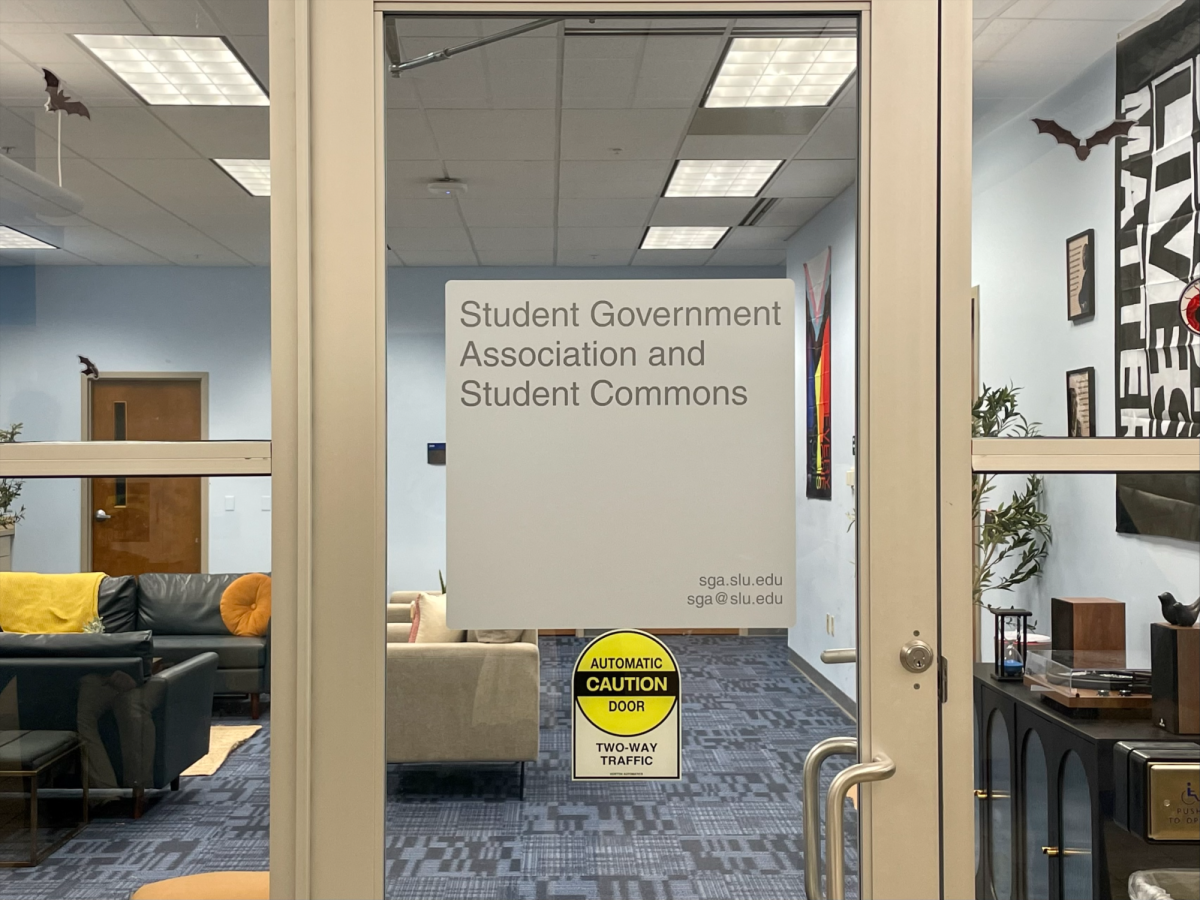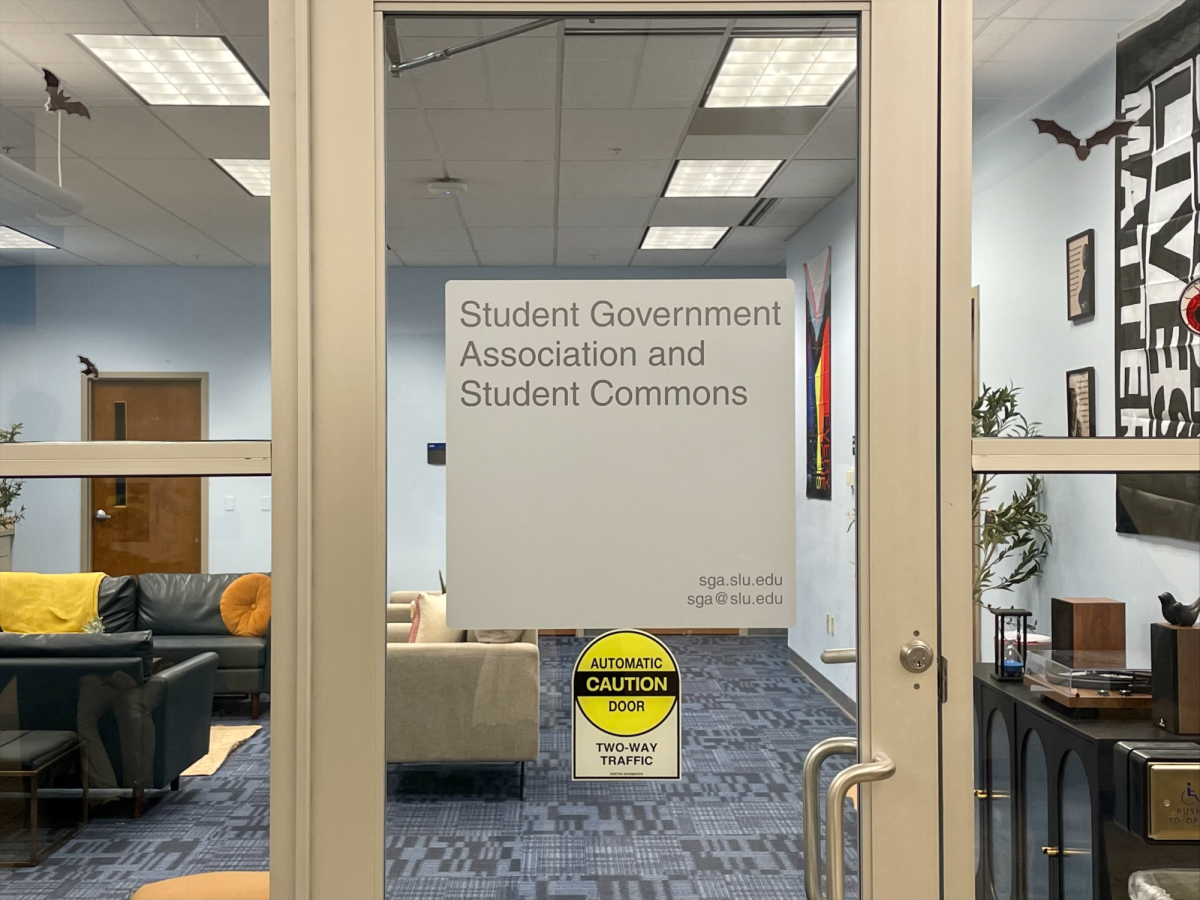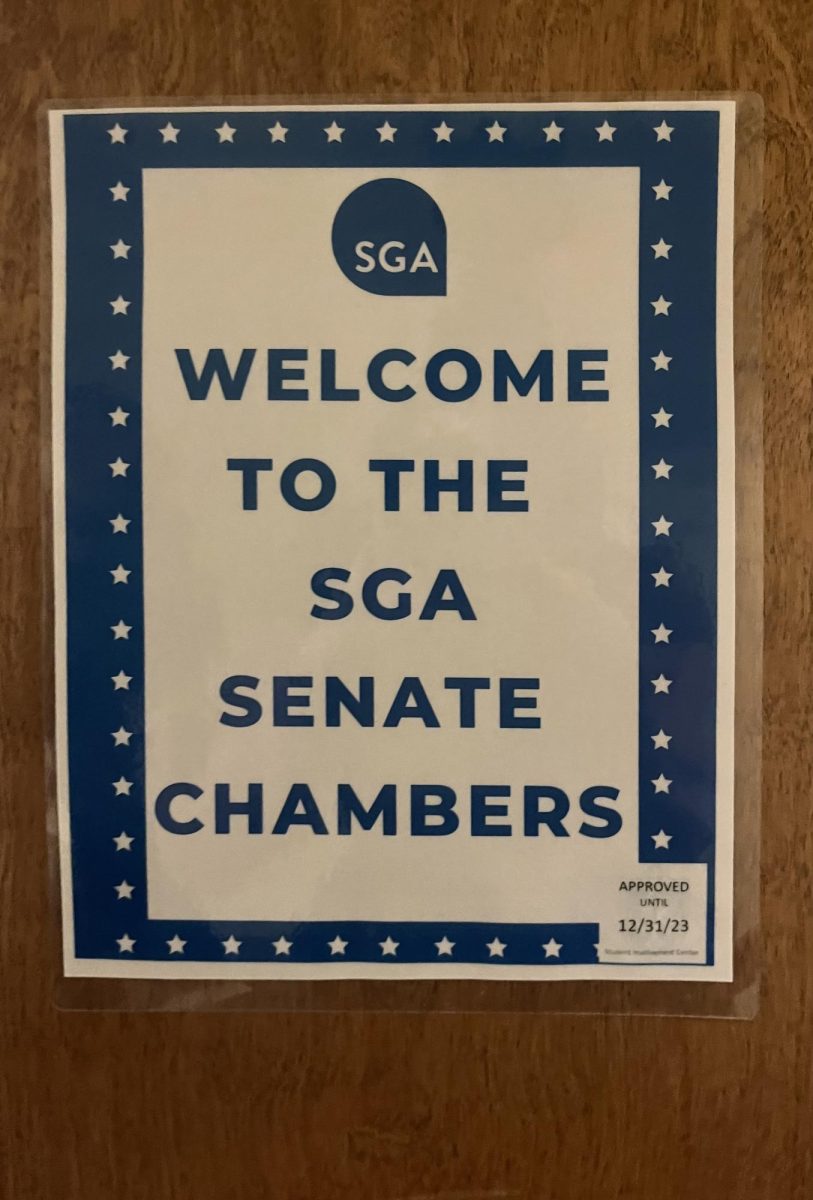Senate Resolution-013-11. The labeling of this resolution, like many other pieces of Student Government Association legislation, is common for the senate. Nonetheless, the debate by the senators over this legislation in the Wed. March 9 SGA meeting witnessed strong opinions, parliamentary procedure confusion—a five minute recess was required at one point to address such an issue—and ultimately, disappointment by the resolution’s supporters.
The resolution pertained to a recent piece of Missouri state government legislation. The Missouri legislation, if passed would require all voters in the state to own an official piece of photo identification in order to vote. Unofficial identification, as deemed by the bill, would include out of state driver’s licenses and student IDs.
The SGA resolution was co-authored by College of Arts and Sciences senator Patrick Grillot and senior Thomas Bloom.
The resolution, if passed by SGA, would voice an opposition to the Missouri bill. This action of political opinion is the source of much of the debate by the senators.
Senators in favor of the bill, such as Grillot and Black Student Alliance senator Kale Kponee, made arguments stating SGA should pass this resolution because the proposed State legislation has the capacity to affect students.
“I think it is always our job to look out for the best interest of our students,” Kponee said. Kponee compared this issue to something similar to the Arizona immigration laws happening in St. Louis. She said that if something such as those laws were to happen in this area and resulted in students being adversely affected, and then SGA should take a stance and voice an opinion.
Currently there are 1,509 students registered to vote in the Busch Student Center. If the Missouri state government passes this bill, those students would have their registration voided.
When Kponee refers to SGA making a political statement, she refers to the notion that the SGA resolution, and resulting opposition to the Missouri bill, would be seen as a political opinion by the student body. Those in opposition to the SGA resolution did not believe the role of SGA was to take such action.
Transfer senator Matthew Specter was one such senator.
“It sets a precedent that could be divisive in the future,” Specter said.
First-year senator Joe Woster was also in opposition of the bill and said the resolution does not pertain to the mission of SGA, representing the students to the administration.
“Where is our line of representation?” Woster said. “I believe it exists at any organized political statement on behalf of the students. We must remember our role as [SGA] of Saint Louis University, we are not a state [or] federal interest group.”
Woster said the passing of this bill could also result in a loss of credibility for the organization, as viewed by the administration, and thus the possibility of a decrease in organized student voice on campus.
After the conclusion of the debate, the senate moved to a vote.
With 13 in favor, 24 opposed and two abstaining, SR-013-11 failed.
Co-authors Bloom and Grillot each made a statement after the result of the vote, as well as SGA president Courtney Anvender.
Grillot said he was very disappointed in the vote and disagreed with the opinion that SGA does not have the role to address issues with political natures.
“Advocating for students’ right to vote at SLU is absolutely within the scope of SGA,” Grillot said. “In fact, advocating for students is the sole responsibility of this body. [Those in opposition] performed a disservice to their constituents tonight.”
Bloom said the issue at hand demanded something “resolute” but there was a noticeable amount of “timidity” in senate, an “obsession with precedent and obedience to administrators.”
“Their silence on something that affects students so profoundly is incredibly disappointing,” Bloom said. “The student voice will be heard on this one way or another. I encourage students to stand up for their right to vote by contacting their representatives.”
Anvender said she is not comfortable with SGA making political statements because by doing so “you’re supporting the views of some students and ostracizing the views of others.”
“I never want any student to feel like this is not their SGA and a political statement and a political stance coming out of SGA is much different than a funding a decision or any other resolution that affects campus life and campus policy,” Anvender said. “If a group doesn’t agree with a political decision we made, they don’t feel this is their SGA.”
Anvender said she takes precedent very seriously and a future-oriented approach is something she said she always keeps in mind. She also does not agree with outside politics being brought into the senate chambers for the reasons seen during the Wednesday meeting.
“It gets messy, it gets personal and it becomes a values-based debate and that’s something that doesn’t belong in the chambers,” Anvender said. “We’re not the voice to the federal and local government.”












